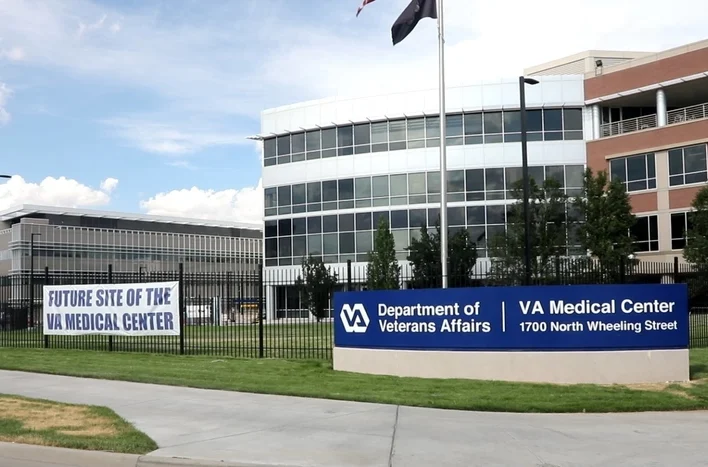VA Expands Community Care Options for Qualifying Veterans

The Department of Veterans Affairs has announced expanded community care authorizations for veterans with qualifying medical conditions. Under the expansion, 30 types of what the VA terms “standardized care” options are affected.
According to VA.gov, the move is designed to “improve Veterans’ access to health care by extending the length of new VA community care authorizations to one year for 30 standardized types of care.”
That means veterans referred to community care (for qualifying types of care, see below) receive 12 full months of uninterrupted treatment at VA expense before having to obtain a VA reauthorization to continue that treatment.
>> Never miss a benefits update. Subscribe to the MyMilitaryBenefits Newsletter today.
What Is VA Community Care?
Veterans can apply to use non-VA community providers when the Department of Veterans Affairs is unable to provide the necessary services. VA Community Care options are determined based on “specific eligibility requirements, availability of VA care, and the needs and circumstances of individual Veterans.”
VA.gov reminds that those who use the program are responsible for a copayment for any medical treatment that is not service-connected.
“In addition,” the VA warns, “VA may bill Veterans’ health insurance for medical care, supplies, and prescriptions related to treatment of nonservice-connected conditions.”
How the Rule Changes Affect VA Community Care
“Veterans will benefit from uninterrupted access to essential specialty services,” which the VA claims lets patients focus “more on their health and less on navigating administrative requirements.”
The VA claims the new program “empowers” medical providers in the local community to manage care with fewer administrative barriers and greater flexibility.”
>> Never miss a benefits update. Subscribe to the MyMilitaryBenefits Newsletter today.
New VA Community Care Authorizations
In the Department of Veterans Affairs announcement, VA provides a list of year-long community care authorizations for the following standardized types of care:
- Cardiology
- Dermatology
- Endocrinology
- Neurology and Otology
- Otolaryngology or ENT
- Gastroenterology
- Urogynecology
- Addiction Psychiatry Outpatient
- Family & Couples Psychotherapy Outpatient
- Mental Health Outpatient
- Nephrology
- Neurology
- Nutrition Intervention Services
- Oncology and Hematology
- Neuro-Ophthalmology
- Oculoplastic
- Eye Care Examination
- Optometry Routine
- Orthopedic Hand
- Orthopedic General
- Orthopedic Spine
- Pain Management
- Podiatry
- Podiatry DS
- Addiction Medicine Outpatient
- Pulmonary
- Physical Medicine & Rehabilitation (Physiatry)
- Rheumatology
- Sleep Medicine
- Urology
Contact your local VA Medical Center Community Care Office if you have questions about how the upgraded VA policy may affect care options.
Who Qualifies for VA Community Care?
To be eligible for VA community care, the following must apply: you are eligible for VA health care and have approval from your VA health care team to see a community-based healthcare provider.
VA.gov says at least one of these must be true:
- You need a service not provided at any VA health facility, or
- You live in a state or territory that doesn’t have a full-service VA health facility, or
- You and your VA provider agree that getting care from an in-network community provider is in your best medical interest, or
- The Department of Veterans Affairs “can’t provide the service you need in a way that meets our quality standards,” or
- You qualified under the 40-mile distance requirement as of June 6, 2018, and you live in Alaska, Montana, North Dakota, South Dakota, Wyoming, or another location that would make you eligible under these requirements, or
- VA “can’t provide the care you need within our standards for drive and wait times.”
Concerns
Based on the VA’s track record, which includes the troubled rollout of an upgraded medical records system and veteran benefits overpayment scandals, the future of programs, including the new expanded Community Care guidelines upgrade, is unclear.
A 2023 Government Accountability Office (GAO) report notes:
“Since VA has not adequately addressed well-known challenges in processing disability claims and updating information in its eligibility criteria that we have reported on since 2003, the department is not as well-positioned as possible to respond” to an increase in veterans who need health care, VA services, compensation, or related benefits.
The VA press release does not indicate this is a temporary program. But in light of radical changes to VA healthcare policy starting in January 2025 and beyond, some feel justified in feeling unsure whether any new VA policy will endure from one administration to another.
Will the VA continue with this program once the first year is over? Or will it be abandoned like the VA’s VET TEC pilot program? Some critics believe it’s best not to become too accustomed to new VA initiatives until they have completed their initial rollout periods.
>> Never miss a benefits update. Subscribe to the MyMilitaryBenefits Newsletter today.
About the author
Editor-in-Chief Joe Wallace is a 13-year veteran of the United States Air Force and a former reporter/editor for Air Force Television News and the Pentagon Channel. His freelance work includes contract work for Motorola, VALoans.com, and Credit Karma. He is co-founder of Dim Art House in Springfield, Illinois, and spends his non-writing time as an abstract painter, independent publisher, and occasional filmmaker.


